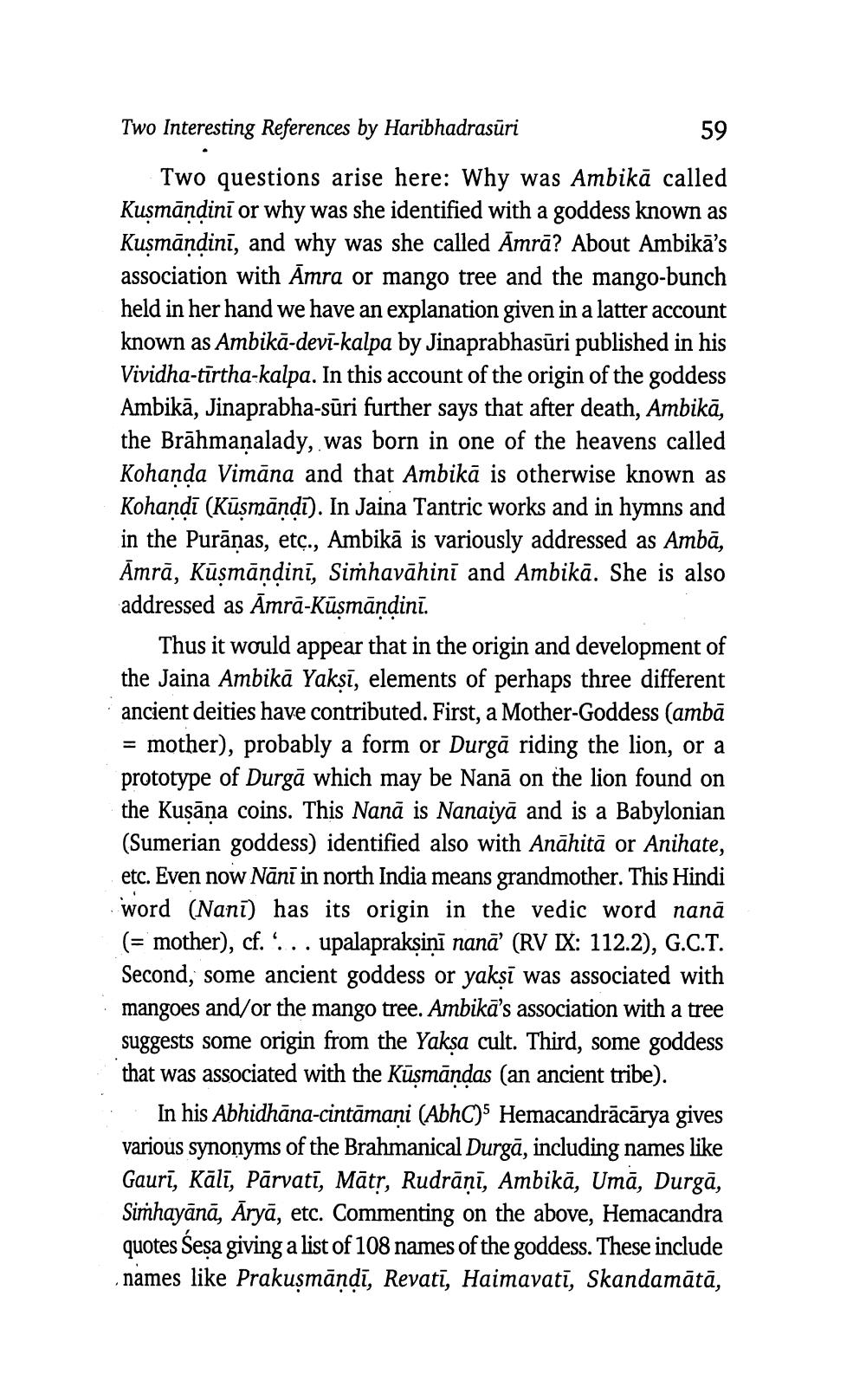________________
Two Interesting References by Haribhadrasūri
59
Two questions arise here: Why was Ambikā called Kusmāņdinī or why was she identified with a goddess known as Kuşmāņdinī, and why was she called Amrā? About Ambikā's association with Amra or mango tree and the mango-bunch held in her hand we have an explanation given in a latter account known as Ambikā-devi-kalpa by Jinaprabhasūri published in his Vividha-tīrtha-kalpa. In this account of the origin of the goddess Ambikā, Jinaprabha-sūri further says that after death, Ambikā, the Brāhmaṇalady, was born in one of the heavens called Kohanda Vimāna and that Ambikā is otherwise known as Kohandī (Kūsmāndı). In Jaina Tantric works and in hymns and in the Purāṇas, etc., Ambikā is variously addressed as Ambā, Āmrā, Kūşmāņdinī, Siṁhavāhini and Ambikā. She is also addressed as Āmrā-Küsmāndinī.
Thus it would appear that in the origin and development of the Jaina Ambikā Yakṣī, elements of perhaps three different ancient deities have contributed. First, a Mother-Goddess (ambā = mother), probably a form or Durgā riding the lion, or a prototype of Durgā which may be Nanā on the lion found on the Kuşāņa coins. This Nanā is Nanaiyā and is a Babylonian (Sumerian goddess) identified also with Anāhitā or Anihate, etc. Even now Nānī in north India means grandmother. This Hindi word (Nanī) has its origin in the vedic word nanā (= mother), cf. '... upalaprakṣinī nanā (RV IX: 112.2), G.C.T. Second, some ancient goddess or yakṣī was associated with mangoes and/or the mango tree. Ambikā's association with a tree suggests some origin from the Yakşa cult. Third, some goddess that was associated with the Kūsmāndas (an ancient tribe). . In his Abhidhāna-cintāmaņi (AbhC)5 Hemacandrācārya gives
various synonyms of the Brahmanical Durgā, including names like Gaurī, Kālī, Pārvatī, Māts, Rudrāṇī, Ambikā, Umā, Durgā, Simhayānā, Āryā, etc. Commenting on the above, Hemacandra quotes Sesa giving a list of 108 names of the goddess. These include names like Prakuşmāņdī, Revatī, Haimavatī, Skandamātā,




